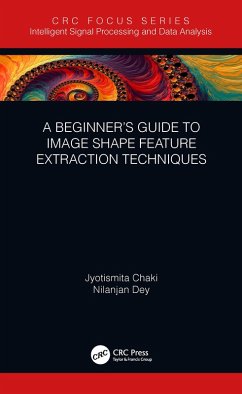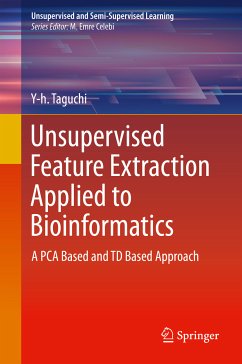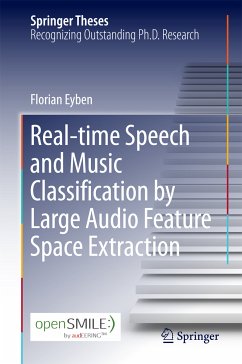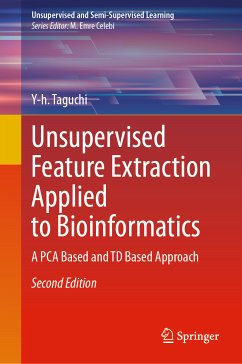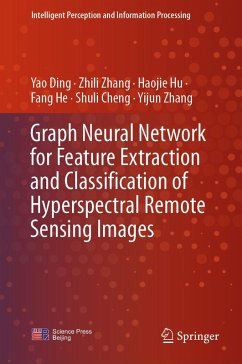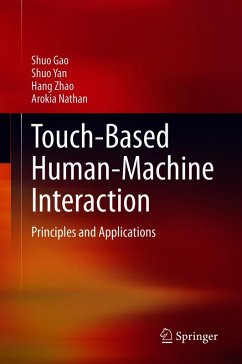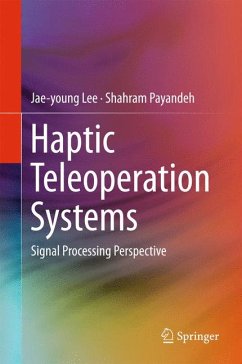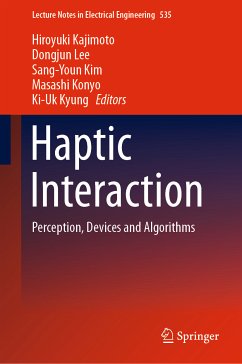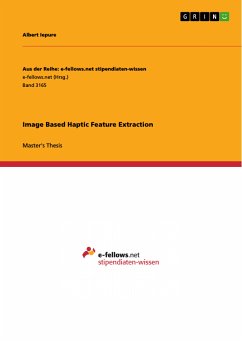
Image Based Haptic Feature Extraction (eBook, PDF)
Versandkostenfrei!
Sofort per Download lieferbar
36,99 €
inkl. MwSt.

PAYBACK Punkte
0 °P sammeln!
Master's Thesis from the year 2015 in the subject Electrotechnology, grade: 1, Technical University of Munich, language: English, abstract: Images of different object surfaces convey important information about haptically perceptible textures. The extraction of tactile information of different materials by making use of inexpensive technologies can have practical and commercial applications in e-commerce or robotics. However, differences in distance, rotation, lighting and focus conditions are hurdles which need to be overcome to extract robust image-based features that will allow a successful...
Master's Thesis from the year 2015 in the subject Electrotechnology, grade: 1, Technical University of Munich, language: English, abstract: Images of different object surfaces convey important information about haptically perceptible textures. The extraction of tactile information of different materials by making use of inexpensive technologies can have practical and commercial applications in e-commerce or robotics. However, differences in distance, rotation, lighting and focus conditions are hurdles which need to be overcome to extract robust image-based features that will allow a successful surface classification task. In this work, eleven haptically relevant features are introduced, which have a low to invariant dependency on different camera conditions. These are used for a robust machine learning-based approach for surface classification. A database of 690 images, corresponding to 69 different textures, is used to extract haptically relevant features. Perceptually-relevant image features such as roughness, softness and regularity are used to correctly classify the textures. The extracted features are perceptually relevant so that they can be also used in future work for the retrieval of the most similar textured surface to a classified one. Experimental results and the evaluation of a cross-validated naive Bayes classifier show that the proposed approach allows for the successful classification of textured surfaces under varying camera conditions, a maximum prediction accuracy of 85.8% being achieved. When a subset of 6 features is selected, a classification accuracy of 82.5% is obtained.
Dieser Download kann aus rechtlichen Gründen nur mit Rechnungsadresse in A, B, BG, CY, CZ, D, DK, EW, E, FIN, F, GR, HR, H, IRL, I, LT, L, LR, M, NL, PL, P, R, S, SLO, SK ausgeliefert werden.




